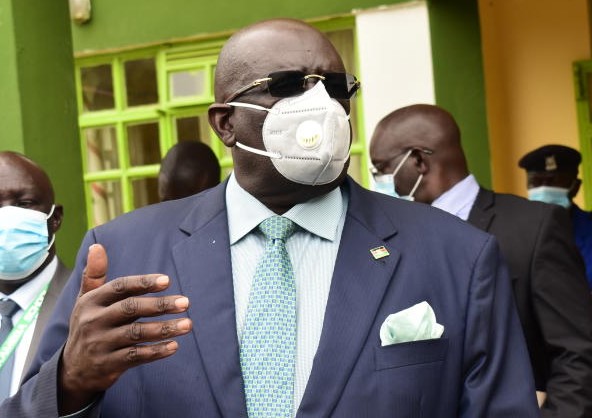×
The Standard e-Paper
Kenya’s Boldest Voice

Education CS Prof George Magoha at Kakamega High School. [Mumo Munuve, Standard]
Education Cabinet Secretary Prof. George Magoha has defended the role of teachers in the execution of the Competency-Based Curriculum (CBC), saying they are adequately trained to handle it.